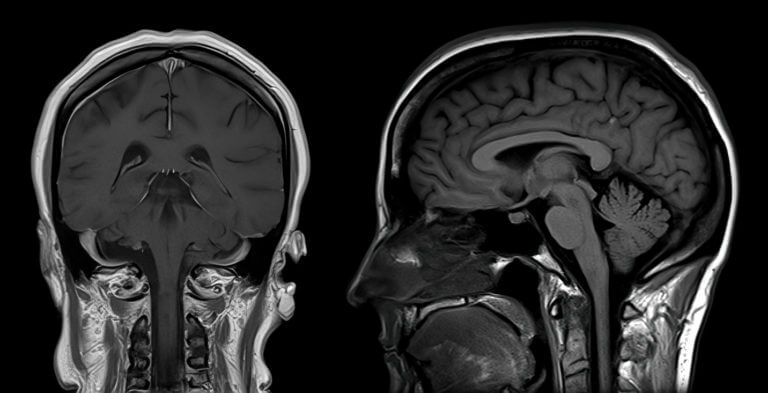
Magnetic resonance imaging (MRI) is a type of imaging technology used to create detailed images of the body’s internal structures. It uses strong magnetic fields and radio waves to produce images, which can be used by doctors to diagnose and treat medical conditions. MRI has become an invaluable tool in modern medicine, providing physicians with information that would otherwise be impossible to obtain without invasive surgery. MRI is a powerful tool used in the diagnosis of many neurological conditions.
How MRI Scans Work
MRI machines work by creating a powerful magnetic field around a patient’s body. This causes certain molecules within the body—primarily hydrogen atoms—to align themselves with this field. When exposed to a second set of radio waves at different frequencies, these aligned atoms emit signals that are detected by special receivers outside the scanner and converted into an image on a computer screen for analysis by radiologists or other healthcare professionals.
The power of MRI lies in its ability to create detailed images without using radiation like X-rays or CT scans do. Instead, it relies solely on a magnet and radio waves for imaging purposes, making it much safer than traditional methods of diagnosis or treatment planning involving radiation exposure. Additionally, because no invasive procedures are required during an MRI scan, patients experience less discomfort during their procedure, compared to other types of diagnostic tests that may require a certain level of invasiveness.
What Neurological Conditions Can MRI Diagnose?
MRI can provide detailed images of the brain, spinal cord, and other areas of the body that are affected by neurological disorders. MRI imaging can detect abnormalities in the structure or function of these areas that may be caused by aneurysm, stroke, multiple sclerosis (MS), Parkinson’s disease, Alzheimer’s disease, traumatic brain injury (TBI), hydrocephalus, epilepsy, tumors, and much more.
MRI is one of today’s most important tools in diagnosing neurological conditions quickly and accurately for treatment planning, all while minimizing risks associated with other methods that involve patients being exposed to radiation. Its ability to provide clear images without requiring any invasive procedures makes it especially valuable for neurologists who want useful information about a patient’s brain and spine health. With MRI, a patient with a neurological condition can receive much-needed treatment sooner rather than later to better manage their condition and improve their overall prognosis.
MRI in Southeast Michigan
For advanced MRI scans, choose Associates in Neurology. Our board-certified neurologists are some of the best in Southeast Michigan. We use MRI to analyze our patients’ brain and spine and make a definitive diagnosis of their neurological condition. Our care team provides advanced treatment and support for patients with neurological conditions, as well as their families and caregivers.
Neurological health conditions can be scary without the right support, which is why our physicians provide gentle compassion for all our patients. We see patients in our Farmington Hills, Novi, Southfield, Brighton, and Howell locations.
To schedule an appointment with one of our neurologists, call our office today at (248) 478-5512 or use our convenient online request form.


